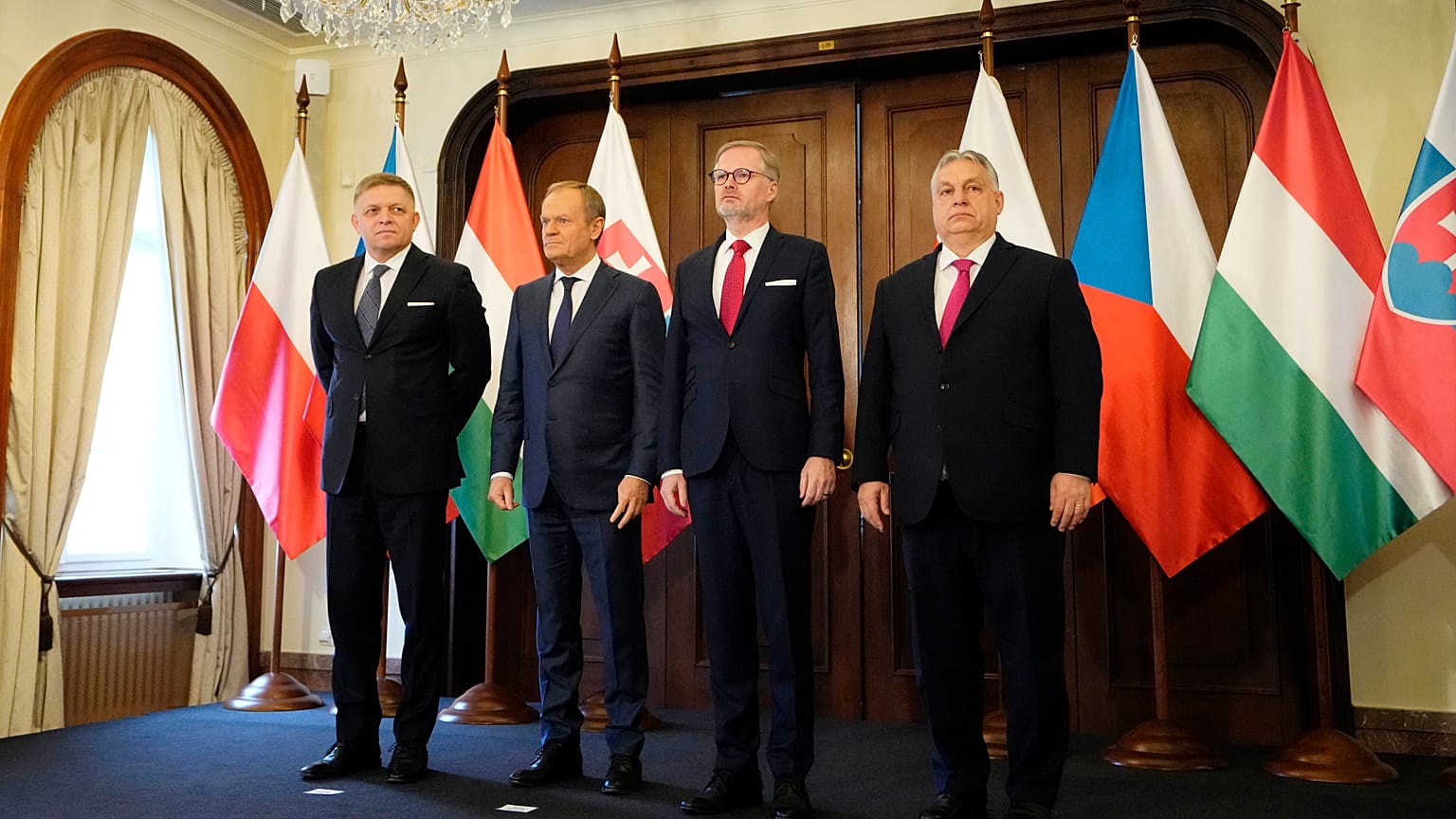The Czech Republic and Poland are providing military aid to Ukraine, while Hungary and Slovakia say they won't send arms to Kyiv but are ready to contribute humanitarian or financial aid.
The Visegrad Four, an informal coalition of Central European countries, are sharply divided in their views on the Russian war against Ukraine and the approaches to resolving the conflict.
 ADVERTISEMENT
ADVERTISEMENT
 ADVERTISEMENT
ADVERTISEMENT
The prime ministers of the Czech Republic, Hungary, Poland and Slovakia were on the same page at a meeting in Prague on Tuesday, saying Russia's aggression against Ukraine is a flagrant violation of international law and that Kyiv needs help.
However, the V4 countries have different opinions on the causes of the Russian aggression and on the kinds of support they're ready to offer Ukraine.
While the Czech Republic and Poland are united in staunch support for Ukraine, including arms deliveries, Hungary and Slovakia have sharply different views.
“I think I can say there are differences among us,” said Czech Prime Minister Petr Fiala, who hosted their meeting in Prague.
“I won't keep it secret, it wouldn't make sense, that we differ in the views of the cause of the Russian aggression against Ukraine and the ways of solving it,” Fiala said.
"Russian President Vladimir Putin is a war criminal, the only reason for the war in Ukraine is Russia’s aggression against Ukraine,” Polish Prime Minister Donald Tusk said. "Regardless of how strong a country Russia remains to be, the political, moral and historical assessment of what is going on today in Ukraine must be unequivocal,” he added.
Slovakia and Hungary have refused to give Ukraine arms and ammunition.
Slovak Prime Minister Robert Fico has said the West’s approach to the war is “an absolute failure.”
"A military solution to the conflict in Ukraine is something I don't believe in," Fico stated. He also mentioned that the EU ought to devise a peace strategy for the war.
Fico, a leftist populist, has previously repeated Russia’s narrative about the causes of the Ukraine war, including Putin’s unsupported claim that the current Ukrainian government runs a Nazi state from which ethnic Russians living in the country’s east needed protection.
He also opposes EU sanctions on Russia and wants to block Ukraine from joining NATO. He said no amount of Western weapons for Ukraine would change the course of the war.
“The war could end only by negotiations,” said the Hungarian Prime Minister Viktor Orbán, a nationalist conservative populist. He added that the peace talks should begin “the sooner, the better."














